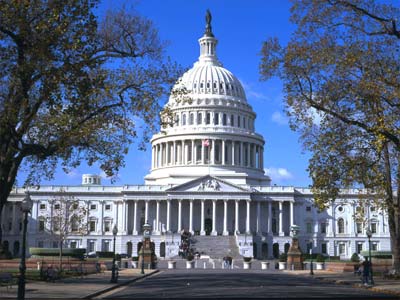Pakistan remains the geographic crossroads for terrorism: US
 Washington, Oct 22 If increasingly bold attacks on well guarded targets in Pakistan remain unchecked, it could help Al Qaeda develop and use a biological weapon or a nuclear device against the US or its allies, a Congressional Commission has warned.
Washington, Oct 22 If increasingly bold attacks on well guarded targets in Pakistan remain unchecked, it could help Al Qaeda develop and use a biological weapon or a nuclear device against the US or its allies, a Congressional Commission has warned.
"Pakistan remains the geographic crossroads for terrorism and weapons of mass destruction," the bipartisan Commission on the Prevention of Weapons of Mass Destruction Proliferation and Terrorism said in a "World at Risk" report Thursday.
"Fear of continued turmoil in Pakistan reinforces the commission's concerns that the country could be an unwitting source of a terrorist attack on the United States - possibly with weapons of mass destruction," it said.
"Increasingly bold attacks on well guarded military, police, and UN targets indicate that the Taliban, Al Qaeda, and other militant groups within Pakistan are a growing threat," it said, warning about Al Qaeda developing and using a biological weapon or a nuclear device.
"The current trends, if left unchecked, will increase the odds that Al Qaeda will successfully develop and use a biological weapon or a nuclear device against the United States or its allies," it warned.
The report focused on ways the US could strengthen the non-proliferation regime, improve international cooperation -particularly with Russia - develop more effective policies to eliminate terrorist havens in Pakistan, and galvanise allies to stop the Iranian and North Korean nuclear weapons programmes.
The commission also recommended that President Barack Obama and the Congress should "implement a comprehensive policy toward Pakistan that works with Pakistan and other countries to eliminate terrorist safe havens, secure nuclear and biological materials, counter and defeat extremist ideology, and constrain a nascent nuclear arms race in Asia."
The reaction in Pakistan to the anti-terror conditions in Pakistan aid bill providing for $7.5 billion in aid to Pakistan over five years, "reinforce commission concerns about the country's stability," the report said.
"The commission repeats the concern expressed in the report that 'soft' or 'smart' power is not the same thing as traditional foreign aid," the commission said, referring to Secretary of State Hillary Clinton's resort to "smart power" in America's dealings.
"It means a complete reassessment and reconstruction of US capabilities to communicate effectively about American intentions, to assist in building grassroots democracy and economic institutions, and otherwise support American foreign policy using the civilian elements of national power," it said.(IANS)